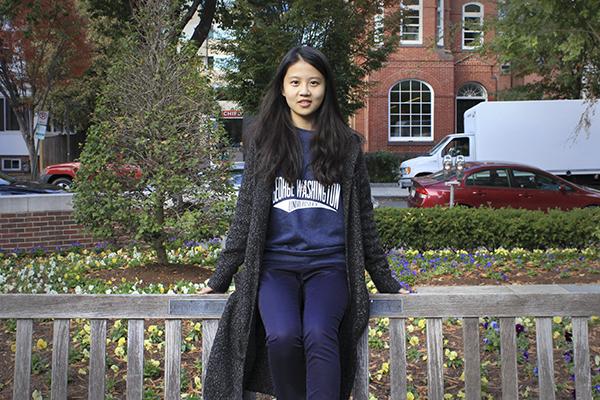The GW Parents’ Association Advisory Council is looking to go global.
The PAAC, a group of 30 GW parents and caregivers, will work to increase global representation on the council, starting with filling seats with international parents this year and using features like toll-free call-ins and webcam presentations more often, as part of a bigger University-wide trend toward globalization. These new elements will work to bridge the physical and cultural gap parents in other countries face when trying to get involved.
The council plans to assign three seats to international parents each year, PAAC president Bob Pagoni said.
Pagoni said the group is trying to combat disadvantages for international parents that can keep them from getting involved on campus, like language barriers, distance and the cost of travel.
“For international parents in particular, you could have parents that are elected into the group, but they don’t have the ability to participate. They can’t afford it, especially if they’re living in somewhere like India, Pakistan or Vietnam,” Pagoni said. “The expense to coming to meetings three times a year would be tough, especially if they may be paying part or all of their student’s expenses at the University.”
About 10 percent of GW students are international, a number officials hope will balloon over the next decade.
Pagoni said the organization is looking into having intermediate PAAC meetings during the year through a toll-free number, using more presentation-friendly software for parents attending meetings remotely and increasing the number of committee meetings so that parents can stay “more involved.”
He said PAAC can be constructive for all parents and caregivers who are looking to give their students the best educational experience possible.
“The stuff we do and the stuff we talk about, it benefits everybody,” Pagoni said. “If I sound like I’ve been drinking the buff-and-blue Kool-Aid, I have.”
Andrew Sonn, the director of Parent Services, said in an email that reaching out to international parents helps “strengthen GW’s global network.”
“With the number of international undergraduate parents projected to increase under GW’s strategic plan, international parents are key partners in the success of their students and play an important role in GW’s globalization efforts,” Sonn said.
He also said increasing international parents’ participation in PAAC will help with some of the goals GW has set, like creating global career initiatives and raising GW’s international profile.
Administrators have taken steps like adding translation features to many GW websites to make resources more accessible to those abroad, maintaining a focus on internationalization.
Nalin Miglani, who recently moved to New York from the Netherlands, now calls himself a “national-international parent” and was the only international parent on the PAAC. He led the charge to set aside three spots for international parents. He said in an email that he felt he would be unable to get elected to the council as an international parent, so he reached out to administrators to secure a role for parents like himself.
He added that international parents are more worried about how their child will fare after graduating because they face more obstacles when looking for jobs in the U.S, and that parents are faced with a different set of “emotional challenges” while the student is away.
“They reside in different time zones, making it difficult for them to connect with their students with the same ease as U.S. parents. They are unable to visit the campus as frequently, if at all, as U.S. parents,” Miglani said. “This leaves the international students and their parents with long stretches of time without any physical family connect.”
The Office of Parent Services added translation features to their website this year as a way to open up communication with international parents. Still, parts of GW’s admission and freshman preparation process, like housing information, are still sent out in English, which international student Yuyang Zhao said is the main barrier to getting her parents involved in her education.
“The biggest question for whether my parents can connect to GW is language. They want to get involved with my university life, but they can’t understand the material they receive,” Zhao said.
The freshman said that when she was preparing for college at home in Hangzhou, China, her mother would use the computer to try and translate materials they were receiving, like the checklist of items students should and shouldn’t bring to campus.
“My mother is funny. When she received the sheet with what we should bring, like a student she wrote every word in Chinese next to the English words,” Zhao said. “I was moved at the time – she helped me to prepare everything.”







